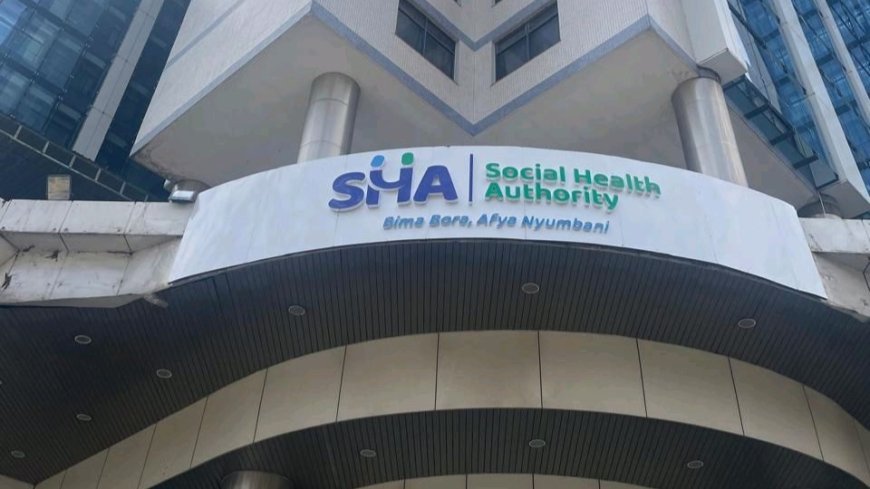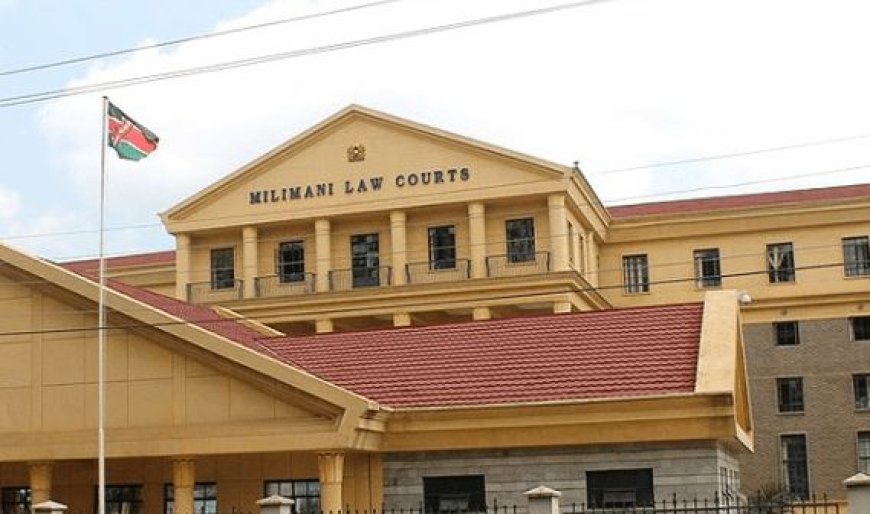CS Duale Clarifies High Court Ruling On SHIF Deductions
The Cabinet Secretary dismissed claims that the program had been suspended due to a recent High Court ruling

Health Cabinet Secretary Aden Duale has stated that the 2.75 percent deduction from gross income for the Social Health Insurance Fund (SHIF) remains in effect under the current legal framework.
The Cabinet Secretary dismissed claims that the program had been suspended due to a recent High Court ruling, though he acknowledged that the Ministry of Health respects the High Court's decision in Petition E524 of 2024 — Clarence Oboso v. Ministry of Health & Social Health Authority.
"This Petition challenged the transition of data from the National Health Insurance Fund (NHIF) to SHA, as well as the statutory 2.75% contribution to the Social Health Insurance Fund (SHIF). The Court, recognizing that the core issues raised in the petition are already under active consideration by the Court of Appeal, declined to issue any orders and struck out the petition," he stated.
"We wish to reassure all Kenyans and our institutional partners that the 2.75% contribution remains legally in force and is now recognized as tax- deductible under the Tax Laws (Amendment) Act, 2024."

A photo of the Social Health Authority (SHA) headquarters in Nairobi. /SOCIAL HEALTH AUTHORITY
The petition contested both the transfer of health insurance data from the defunct National Health Insurance Fund (NHIF) to the Social Health Authority (SHA), as well as the legality of the SHIF deductions.
However, the High Court chose not to make a ruling on these issues, noting that similar cases are already being reviewed by the Court of Appeal.
Duale reassured Kenyans and stakeholders that SHA is still functioning within the bounds of the law, as outlined in the Universal Health Coverage framework, including the Social Health Insurance Act and the Digital Health Act.
"SHA continues to operate within the legal framework provided by the Universal Health Coverage laws the Social Health Insurance Act. the Digital Health Act. and the Primary Health Care Act-all of which are designed to uphold equity. financial protection, and access to quality health services for all Kenyans," he added.
Duale nonetheless reaffirmed the government's commitment to a transparent, rights-based, and citizen-centered transition from NHIF to the SHA system and that data protection and continuity of service remain top priorities throughout this process.
"SHA acknowledges the important role of our courts in shaping public administration and policy. We continue to engage stakeholders across sectors as we implement a more inclusive, accountable, and future-ready national health insurance framework," he went on, inviting Kenyans to "walk with us on this journey toward a healthier, more secure future."
Earlier, Justice Chacha Mwita, who delivered the judgment on Monday, June 23, ruled that the mandatory SHIF contribution amounted to double taxation and is therefore inconsistent with existing income tax laws.
He explained that deducting the SHIF levy directly from gross income—before calculating and applying income tax—places an unfair financial burden on workers, effectively taxing the same income twice.
Justice Mwita further emphasized that such deductions undermine constitutional principles of fairness and legality in taxation. As a result, the court found the move not only illegal but also unconstitutional, marking a significant setback for the government’s rollout of the new health insurance scheme.
“There can be no other gross income from which the person can again contribute 2.75 per cent to the Fund under SHIA and the regulations made thereunder. Any subsequent or other statutory eduction(s) based on the person’s gross income after income tax, is undoubtedly double taxation, charge or levy because the same gross income will have been taxed more than once under the Income Tax Act and the regulations made under SHIA as contribution to the Fund,” ruled Justice Mwita.
“By providing that a person contributes 2.75% of his/her gross income to the Fund after paying income tax from the same gross income, the regulation introduces a negative element of taxation which is double taxation and would, as a result, make such a regulation unlawful."
The case was brought before the court by four medical doctors, who argued that Kenyans are receiving substandard healthcare coverage from the government, despite paying hefty premiums for private insurance.

The Milimani Law Courts in Nairobi. /FILE






